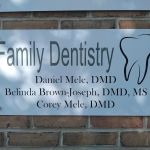How to Treat Oral Problems Caused by Braces: Essential Tips for Relief
- Common Oral Problems Caused by Braces
- How to Manage Braces-Related Tooth Pain
- Dealing with Mouth Sores and Irritation from Braces
- How to Avoid Gum Disease While Wearing Braces
- Maintaining Good Oral Hygiene with Braces
Common Oral Problems Caused by Braces
Braces are an excellent way to straighten your teeth and achieve a beautiful smile. However, while they are effective, they can also cause a variety of oral problems during the treatment process. Understanding these common issues is essential for managing discomfort and preventing further complications. In this section, we will explore the most common oral problems caused by braces and how to address them.
Tooth Pain and Sensitivity
One of the most common issues people experience after getting braces is tooth pain and sensitivity. This discomfort is usually temporary and occurs as your teeth begin to move into their new positions. You may also experience increased sensitivity to hot or cold foods and drinks, which can make eating and drinking uncomfortable.
Braces-Related Mouth Sores
Another common problem is the development of mouth sores caused by the brackets and wires of your braces rubbing against the inside of your mouth. These sores, which are typically canker sores or ulcers, can make speaking, eating, and brushing your teeth painful.
Gum Irritation and Inflammation
Gum irritation and inflammation are also common issues for those wearing braces. This is often due to plaque buildup around the braces, which can cause your gums to become swollen and bleed, especially when brushing or flossing.
How to Manage Braces-Related Tooth Pain
Managing tooth pain caused by braces can be challenging, but there are several ways to alleviate discomfort and speed up your adjustment period. Here are a few tips for managing braces-related tooth pain:
Use Over-the-Counter Pain Relievers
If you’re experiencing tooth pain, over-the-counter pain relievers such as ibuprofen or acetaminophen can help relieve discomfort. Make sure to follow the recommended dosages and consult your dentist if the pain persists for several days.
Apply a Cold Compress
A cold compress can help reduce swelling and numb the area around your teeth and gums. Apply a cold pack wrapped in a towel to your cheeks near the braces for 15-20 minutes at a time to help alleviate pain.
Orthodontic Wax
Orthodontic wax can be applied to the brackets of your braces to help reduce irritation in your mouth. The wax acts as a cushion between the brackets and the inside of your cheeks, minimizing friction and providing relief from painful sores.
Dealing with Mouth Sores and Irritation from Braces
Mouth sores and irritation are frequent complaints for people wearing braces. These problems can make it difficult to speak, eat, and maintain good oral hygiene. Here’s how to manage these issues effectively:
Use Saltwater Rinses
Saltwater rinses can help speed up the healing of mouth sores. Simply dissolve a teaspoon of salt in a glass of warm water and rinse your mouth with it several times a day. The saltwater helps to reduce inflammation, kill bacteria, and promote faster healing.
Try Over-the-Counter Gels or Ointments
Over-the-counter oral gels or ointments, such as Orajel or Anbesol, can be applied directly to mouth sores to numb the pain and promote healing. These products are designed to provide temporary relief from irritation and discomfort caused by braces.
How to Avoid Gum Disease While Wearing Braces
While wearing braces, it’s crucial to take extra care to avoid gum disease, which can be exacerbated by plaque buildup around your brackets and wires. Here are some strategies to help prevent gum disease during your orthodontic treatment:
Brush and Floss Regularly
Brushing and flossing are essential for keeping your teeth and gums healthy, especially when wearing braces. Make sure to brush your teeth after every meal and floss at least once a day. Use a soft-bristled toothbrush and specialized floss threaders to reach between the wires and brackets effectively.
Use Antiseptic Mouthwash
Antiseptic mouthwash can help reduce bacteria in your mouth and prevent gum disease. It’s a good idea to rinse with mouthwash after brushing and flossing to help keep your mouth clean and free of harmful bacteria.
Visit Your Orthodontist Regularly
Regular visits to your orthodontist are important for monitoring your progress and ensuring that your braces are in proper alignment. These visits also allow your orthodontist to check for signs of gum disease or other issues early, so they can address them before they become serious problems.
Maintaining Good Oral Hygiene with Braces
Good oral hygiene is essential when you have braces to prevent oral problems and ensure that your treatment progresses as planned. Follow these tips to maintain healthy teeth and gums throughout your orthodontic treatment:
Brush with the Right Tools
Using the right tools, such as a soft-bristled toothbrush and specialized orthodontic tools like an interdental brush, can help you clean around the brackets and wires effectively. Electric toothbrushes can also help ensure that you’re brushing thoroughly, as they remove plaque more efficiently than manual brushing alone.
Use Fluoride Toothpaste
Fluoride toothpaste helps protect your teeth from decay and cavities. It’s especially important when wearing braces, as food particles can get stuck in the wires and brackets, increasing the risk of tooth decay. Be sure to use fluoride toothpaste for extra protection.
Avoid Hard and Sticky Foods
Some foods can damage your braces or cause discomfort. Avoid hard foods like nuts and hard candies that can break the brackets or wires. Sticky foods like caramel, gum, and taffy can get stuck in your braces, making it harder to clean your teeth properly and leading to plaque buildup.
If you’re experiencing oral problems caused by braces, it’s important to seek advice and care from your orthodontist. At Dentistry Toothtruth, we provide expert orthodontic care and offer solutions to help manage the discomfort caused by braces. Contact us today to learn more about how we can assist with your braces treatment and ensure a smoother, pain-free experience!







 Penelope Chang, DDS4.0 (43 review)
Penelope Chang, DDS4.0 (43 review) Mele Family Dentistry4.0 (21 review)
Mele Family Dentistry4.0 (21 review) Daydream Dental - Top Rated Holistic Dentist in Orange County5.0 (103 review)
Daydream Dental - Top Rated Holistic Dentist in Orange County5.0 (103 review) Madison Oral Surgery & Dental Implants4.0 (661 review)
Madison Oral Surgery & Dental Implants4.0 (661 review) Minnesota Orthodontics - Eagan4.0 (166 review)
Minnesota Orthodontics - Eagan4.0 (166 review) Downer Place Dental & Orthodontics4.0 (634 review)
Downer Place Dental & Orthodontics4.0 (634 review) The Importance of Oral Health Education During Pregnancy for a Healthy Pregnancy
The Importance of Oral Health Education During Pregnancy for a Healthy Pregnancy Best Tips for Brushing Your Teeth Properly for Healthy Gums: Essential Techniques for Oral Health
Best Tips for Brushing Your Teeth Properly for Healthy Gums: Essential Techniques for Oral Health Why Skipping Dental Checkups Can Lead to Bigger Oral Health Problems
Why Skipping Dental Checkups Can Lead to Bigger Oral Health Problems Advantages of Porcelain Dental Restorations
Advantages of Porcelain Dental Restorations How Can Diabetes Cause Tooth and Gum Problems? Preventing and Managing Oral Health Issues
How Can Diabetes Cause Tooth and Gum Problems? Preventing and Managing Oral Health Issues Healthy Habits for Promoting Good Oral Health and Hygiene: Tips for a Healthy Smile
Healthy Habits for Promoting Good Oral Health and Hygiene: Tips for a Healthy Smile